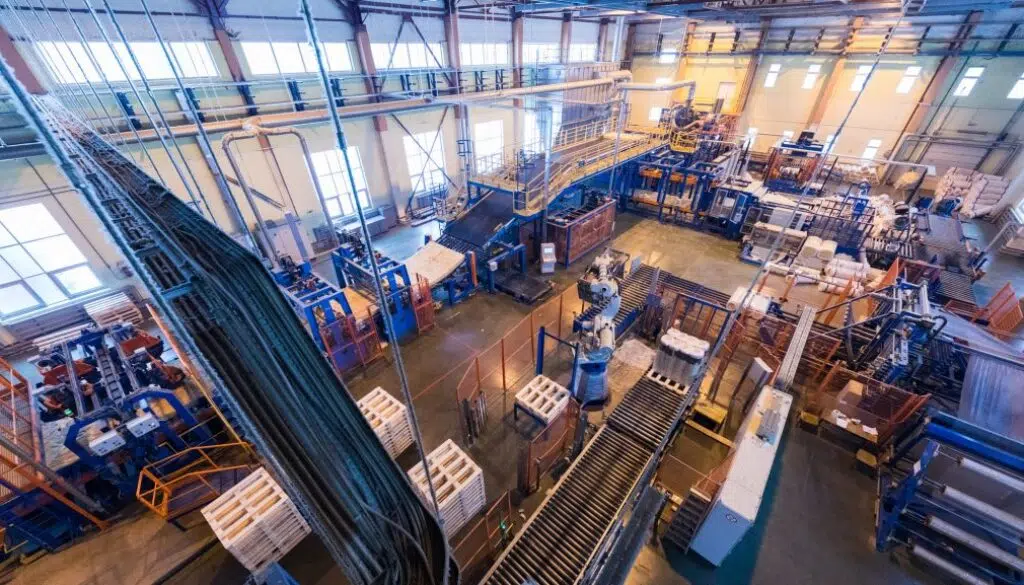An industry group representing Canadian manufacturers is warning that more price hikes are on the horizon, thanks to ongoing supply chain hitches.
“Manufacturers are experiencing very much the same pain as others across the country,” said Ron Marcolin, divisional vice president with Canadian Manufacturers and Exporters (CM&E), based in Saint John.
Marcolin said supply chain issues are hurting the manufacturing sector and slowing its recovery. He noted that nine out of ten manufacturers are facing disruptions of some kind and 60 percent of them are rating those disruptions as severe.
“This is a critical concern in New Brunswick, where manufacturers are stressed like we’ve never seen before,” he said.
“You and I will eventually, unfortunately, have to pay more for our goods, whether they’re manufactured or perishable ones from the grocery store.”
While demand is still strong for manufactured goods, Marcolin said the sector can’t keep up with that demand, thanks to labour shortages, supply chain problems, and higher input costs.
Those concerns, along with the trucker vaccine mandate and border blockades relating to it, as well as the impacts of Covid-19 and its variants, and inflation, have created a recipe for increased prices pushed down to the customer.
Citing numbers from a nationwide survey, released in March, in which 900 of CM&E’s 2,500 members spoke about pandemic impacts to their businesses, Marcolin described the situation as the “eye of the storm,” with transportation issues, inventory pressures, and stress on the production end slowing things down and kicking up expenses.
According to the CM&E report, Canadian manufacturers have also lost about $10.5-billion in sales because of supply chain disruptions, and incurred $1-billion in increased costs.

Ron Marcolin, divisional vice president with Canadian Manufacturers and Exporters. Image: File
Marcolin noted manufacturing makes up about 10 percent of Canada’s GDP but constitutes 90 percent of the country’s exports.
“The consumer, in some cases, might be another company, which, of course, can’t absorb the cost. So in turn they pass it down – it’s a trickle-down effect. There are a lot of pieces in the puzzle but they’re all pushing costs to their customers,” he said.
The study indicates that many in the country’s manufacturing sector don’t see disruptions ending until 2023 or 2024.
Transportation snags
Marcolin said CM&E has been asking governments to help address contributors to the crunch, especially transportation issues.
“New Brunswick manufacturers are having stress added because there are transportation issues around getting [shipping] containers in a timely, cost-efficient manner and getting the container out to market,” said Marcolin.
For things to turn around, Marcolin said there must be more truck drivers on the road and no more bottlenecks at international and provincial borders.
“We want to have it easier on manufacturers in New Brunswick, to get their goods to market. Ultimately, if we make a good and it’s sitting on a dock in Moncton, we can’t get it to, say, the U.S. or Brazil, where our end customer is, in a timely manner,” he said.
“If we can’t do that, we’re in trouble. If you have a series of parts you need to make a good in New Brunswick and can’t get them here in time, you have to either delay the finished product you make or increase costs by ordering more inventory and holding it – and a lot of manufacturers are forced to do that.”
Marcolin said governments can ease pressures by encouraging more immigration to fill job vacancies, adopting more automation technology, providing more financial support to the sector, and mapping Canada’s domestic capacity of strategically important manufactured goods.
“We need better, more efficient production in New Brunswick; we need to work smarter, not harder,” he said.
Another key strategy is to bring more manufacturing to New Brunswick.
“It’s a very competitive world, when enticing net-new business to come to New Brunswick. We have other provinces competing for the same jobs and for the same factories, and the States, too. The Lower 48 have very good incentives for which to set up shop. Even internationally, there are jurisdictions where it’s cheaper for companies to set up,” Marcolin said.
“We have to make a very valid business case for them to come to New Brunswick and make it easy for them to do business in the province.”
Sam Macdonald is a reporter with Huddle, an Acadia Broadcasting content partner.




